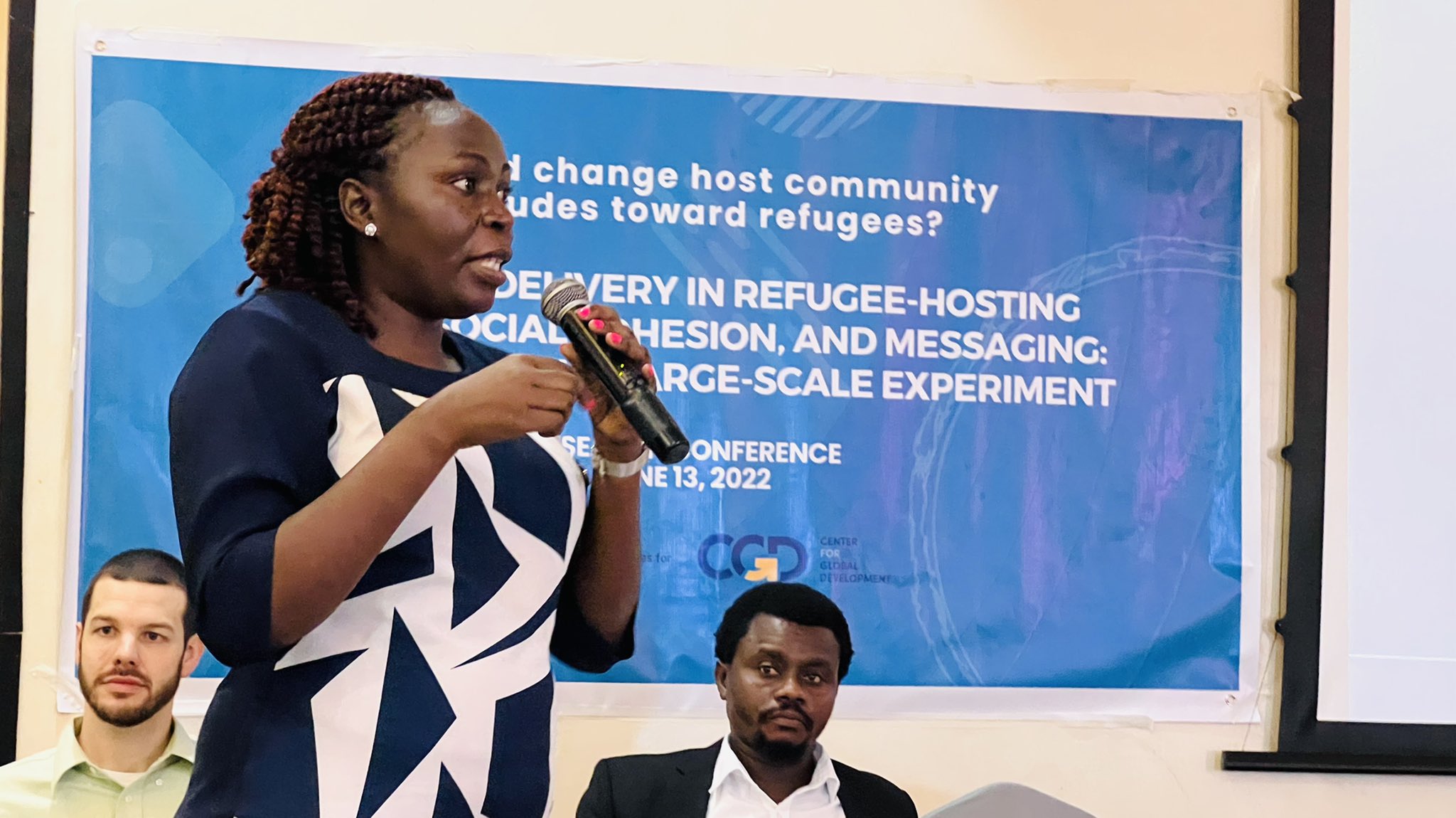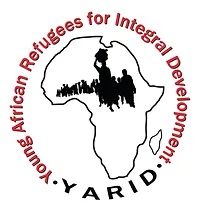Can Development Aid Change Attitudes Toward Refugees? Experimental Evidence from Urban Microentrepreneurs in Uganda
Abstract
Host populations often believe they are negatively affected by refugees, but little is known about what kinds of assistance might foster positive relations and reduce tension. In Uganda, researchers measured the impact of programs for host microentrepreneurs —grants, information on aid-sharing, and mentorship—on owners’ support for policies facilitating refugees’ integration. Results showed that cash grants that were explicitly labeled as aid shared from the refugee response increased Ugandans’ support for the country hosting refugees. The labeled grants increased support for refugees’ right to work by nearly 19 percent and for hosting more refugees by 24 percent. Providing only information about Uganda’s aid-sharing policy produced significant but smaller impacts. Impacts persisted two years after the start of the intervention. Intergroup contact also affected attitudes but did not persist through the two-year follow-up.
Policy Issue
Host countries often restrict refugees’ access to the labor market because they are afraid inclusion would crowd out citizens. Even in protracted situations, international donors can often only provide humanitarian assistance like food aid that keeps refugees alive but has little expected long-run returns for refugees and host communities alike. In this project, researchers studied whether host communities are supportive of more inclusive policy towards refugees when they also benefit from assistance. Policymakers are increasingly promising to include host communities in assistance, most notably in the 2018 Global Compact on Refugees. However, whether this shift can impact host citizens’ policy preferences is an open question. A substantial body of literature examines attitudes toward immigrants,1 though few studies have taken place in lower-income countries.
Context of the Evaluation
Uganda is perhaps the leading example of a positive arrangement between a host government and the humanitarian community. Uganda is the largest refugee-hosting country in Africa, with over 1 million refugees, most of them from South Sudan, the Democratic Republic of Congo, Burundi, and Somalia.2 The government allows refugees to work and move freely. They can locate in settlements and receive food assistance or, since 2006, live and start businesses nationwide. Additionally, 30 percent of aid directed at refugees must support Ugandan's host communities. Still, despite over 100 thousand refugees living in the capital, Kampala, little assistance extends to urban areas, and most citizens are unaware that assistance for refugees is shared with Ugandans.
Details of the Intervention
Researchers partnered with Young African Refugees for Integral Development (YARID) to evaluate the impact of programs supporting micro-enterprises—grants, information on aid-sharing, and mentorship—on business owners’ support for refugee hosting and integration. Other outcomes of interest included business profits, capital, and household welfare.
The microenterprise support program was implemented in Kampala by YARID. Founded by a Congolese refugee, YARID has experience implementing cash transfers and training programs, and in addition to their close connections with the refugee community in Kampala, they include Ugandans in their programs. The research team randomly assigned 1,406 Ugandan business owners to the following groups:
- Grant Only: A business owner received a grant of USD $135.
- Information Only: A YARID staff member conveyed information about Uganda’s national aid-sharing policy, provided examples of public goods supported by refugee aid funding, and conducted listening exercises asking respondents to share their views towards refugees.
- Grant and Information (labeled grant): Business owners in this group received the same refugee-related information provided in the Information Only group and USD $135 grant, which was described as an example of aid sharing under the government’s refugee policies.
- Mentorship: Business owners were randomly assigned to either a refugee or Ugandan mentor with prior entrepreneurial experience to help them develop their business. The mentorship meetings were facilitated by a YARID staff member.
- Comparison Group: Business owners did not receive an intervention.
The baseline survey was conducted in November 2019. Interventions started in early 2020 and were completed in May 2021, with a year-long pause due to the pandemic. Researchers conducted three follow-up surveys between May 2021 and March 2022.
Results and Policy Lessons
The labeled cash grants increased business owners’ support for Uganda hosting refugees by 18.8 percent and significantly increased their support for refugee integration policies. Providing only information about Uganda’s aid-sharing policy also produced significant impacts among business owners, to a lesser degree than the labeled cash grants. Increased support for refugee integration persisted two years after the start of the intervention.
Support for Refugee Integration Policies: Labeled cash grants produced the strongest effects on business owner support for Uganda’s refugee integration policies. Business owners increased their support for Uganda admitting more refugees by 29.3 percent (from 51.5 percent to 66.6 percent), for extending refugee right to work by 22.7 percent (from 60 percent to 73.7 percent), and extending freedom of movement to refugees by 9.8 percent (from 59.9 percent to 65.8 percent). Sharing information about refugee integration was about one-half to two-thirds as impactful as the labeled cash grants in increasing business owner support.
Results also show that changes in self-reported views on integration policies led to changes in real-world behavior among business owners who received labeled cash grants. This group was 43.5 percent more likely to support a letter to local officials expressing their approval of refugee hosting (33 percent compared to 23 percent).
The mentorship program had short-term impacts, especially within a group that randomly received more in-person meetings before activities were suspended due to COVID-19. However, the effects of this contact on policy views did not persist in follow-ups.
Beliefs About Economic Impacts of Refugee Hosting: Labeled cash grants produced the strongest effects on attitudes toward the economic impacts of refugee hosting. Business owners who received a labeled grant were 88 percent more likely to report that international aid is shared with Ugandans (from 17 percent to 32 percent) and 32 percent more likely to say that refugees had a positive impact on the economy overall (from 50 percent to 66 percent). Information only and grants only also significantly changed beliefs, with effects roughly half to two-thirds the size of the impacts of labeled grants.
Policy Lessons: In the Center for Global Development blog, the authors see four takeaways for practitioners and policymakers (quoted directly):
- Include host communities in assistance. Support that is only directed to refugees can further tensions between refugees and hosts, while shared assistance can facilitate positive relations.
- Use an informational script to make the connection between the assistance and the presence of refugees clear. Aid programs increasingly include hosts, but hosts may be unaware that the program exists because of the refugee presence, especially in urban areas or when it’s allocated to services like health or education.
- Incorporate social cohesion into ongoing programming for livelihoods, health, education, and other main sectors. Using ongoing programs to further social cohesion, rather than standalone programs, is likely more cost-effective and may be more effective overall in shifting attitudes.
- Deliver assistance through refugee-led organizations, who can be ideal implementing partners to highlight the link between assistance and refugees. While the 2016 Grand Bargain pledged to allocate 25 percent of humanitarian funding to local organizations by 2020, disbursements amounted to 1.2 percent in 2021. Refugee-led organizations can play a unique and important role in social cohesion that donors should support.
Read the working paper here and a blog post from the Center for Global Development here.
This work is part of the program “Building the Evidence on Protracted Forced Displacement: A Multi-Stakeholder Partnership''. This program is funded by UK aid from the United Kingdom's Foreign, Commonwealth and Development Office (FCDO), it is managed by the World Bank Group (WBG) and was established in partnership with the United Nations High Commissioner for Refugees (UNHCR). The scope of the program is to expand the global knowledge on forced displacement by funding quality research and disseminating results for the use of practitioners and policy makers. This work does not necessarily reflect the views of FCDO, the WBG or UNHCR.
Funding for this research was also provided by the UK Foreign, Commonwealth & Development Office, awarded through Innovation for Poverty Action's Peace & Recovery Program.
Sources
1 Adida, Lo, and Platas 2018; Alrababa’h et al. 2019; Kalla and Broockman 2020; Mousa 2019; Valli et al. 2018; among others.
2 Sulaiman Momodu, “Uganda stands out in refugees hospitality,” Africa Renewal, March 2019, https://www.un.org/africarenewal/magazine/december-2018-march-2019/uganda-stands-out-refugees-hospitality#:~:text=Uganda's%20refugee%20policy%20guarantees%20freedom,can%20farm%20and%20construct%20shelters.













